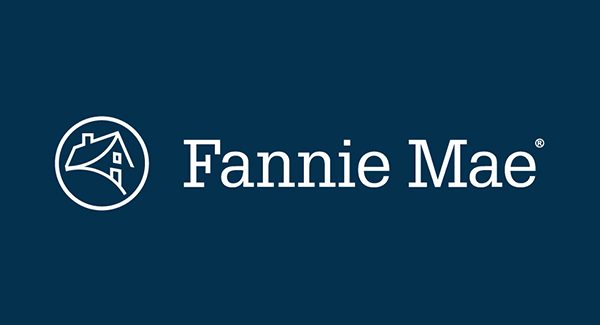The Federal National Mortgage Association (FNMA, otherwise known as Fannie Mae) created a new set of requirements in response to the collapse of the Champlain Towers South in Surfside, Florida in 2021.
As noted in the October, 13, 2021 Fannie Mae press release (https://singlefamily.fanniemae.com/media/29411/display), these requirements were created to address the “a growing concern across the nation” of condominium and co-op residential buildings with “aging infrastructure and significant deferred maintenance”.
Requirement and Categories
Specifically, these requirements:
- “…apply to all loans secured by units in projects with five or more attached units, regardless of the type of project review or review waiver…”
- “…are effective for whole loans purchased on or after Jan. 1, 2022 and for loans delivered into MBS pools with issue dates on or after Jan. 1, 2022 and will remain in effect until further notice.”
These new guidelines address several factors including project eligibility waivers, best practices, reports, and more. Below are three highlighted requirements:
- Significant deferred maintenance and unsafe conditions
- Special assessments
- Reserve requirements
- Documentation
Significant deferred maintenance and unsafe conditions
Below are some of the criteria for significant deferred maintenance as noted in the Fannie Mae guidelines:
- “full or partial evacuation of the building to complete repairs is required for more than seven days or an unknown period of time;
- the project has deficiencies, defects, substantial damage, or deferred maintenance that
- is severe enough to affect the safety, soundness, structural integrity, or habitability of the improvements;
- the improvements need substantial repairs and rehabilitation, including many major components; or
- impedes the safe and sound functioning of one or more of the building’s major structural or mechanical elements, including but not limited to the foundation, roof, load bearing structures, electrical system, HVAC, or plumbing.”
Special assessments
Below are some of the criteria for special assessments as noted in the Fannie Mae guidelines:
“Any current or planned special assessment, even if paid in full for the subject unit, must be reviewed to determine acceptability. The lender must document the loan file with the following:
- the reason for the special assessment;
- the total amount assessed and repayment terms;
- documentation to support no negative impact to the financial stability, viability, condition, and marketability of the project; and
- borrower qualification with any outstanding special assessment payment.
The lender is expected to obtain the financial documents necessary to confirm the association has the ability to fund any repairs. If the special assessment is related to safety, soundness, structural integrity, or habitability, all related repairs must be fully completed or the project is not eligible. Additionally, If the lender or appraiser is unable to determine that there is no adverse impact, the project is ineligible.”
Reserve Requirements
Below are some of the criteria for reserve requirements as noted in the Fannie Mae guidelines:
- “…[suspension of] the Selling Guide flexibility that allows a lender to obtain a reserve study in lieu of the condo project meeting our 10% budget reserve requirement
- “…projects that budget less than 10% of the HOA’s assessment income may be at increased risk for significant deferred maintenance and special assessments.”
Documentation
These new requirements were created to “…[remind] lenders that their appraisers must document any special assessments or deferred maintenance that may impact the safety, soundness, structural integrity, or habitability of the unit or the overall project and its amenities.”
Along with reserve studies and appraisals, below are some of specific documentation guidelines outlined by Fannie Mae:
- Engineering reports
- Inspection reports
- Acceptable certificate of occupancy
- Local regulatory inspections or recertifications
- HOA meeting minutes
Next Step for Board Member and Property Managers
Board members are volunteers, not experts. They will certainly be unaware of revised and constantly evolving building codes. Or the due diligence, inspection, and reporting standards that go under scrutiny after a disaster such as a building collapse.
Nevertheless, board members have a duty to maintain and improve property values within their condominium, homeowner (HOA), and townhome associations.
Board members and property managers must pre-emptively plan and deal with repair and safety issues. Fears of increasing assessments or levying special assessments can lead to underfunded reserves. Deferred maintenance can discourage sales. Ignoring the warning signs and poor planning can create a costly crisis. In addition, ignoring these new guidelines can turn away potential buyers who would otherwise be eligible for a loan.
Legal Resource
Do not hesitate to contact our law firm if your association has questions regarding these new condominium requirements, the board’s fiduciary duties, building codes, reserves, document retention, litigation, or other legal concerns.
Please call 855-537-0500 or visit www.ksnlaw.com.
Please note the material contained in this article is for educational and informational purposes only and does not constitute legal advice. No attorney-client relationship is established by your review or receipt of the information contained in this article. You should not act on the information discussed in this article without first obtaining legal advice from an attorney duly licensed to practice law in your State. While KSN has made every effort to include up-to-date information in this article, the law can change quickly. Accordingly, please understand that information discussed in this article may not yet reflect the most recent legal developments. Material is not guaranteed to be correct, complete, or up to date. KSN reserves the right to revise or update the information and statements of law discussed in the article law at any time, without notice, and disclaims any liability for your use of information or statements of law discussed on the article, or the accessibility of the article generally. This article may be considered advertising in some jurisdictions under applicable law/s and/or ethical rules/regulations. © 2022 Kovitz Shifrin Nesbit, A Professional Corporation.

